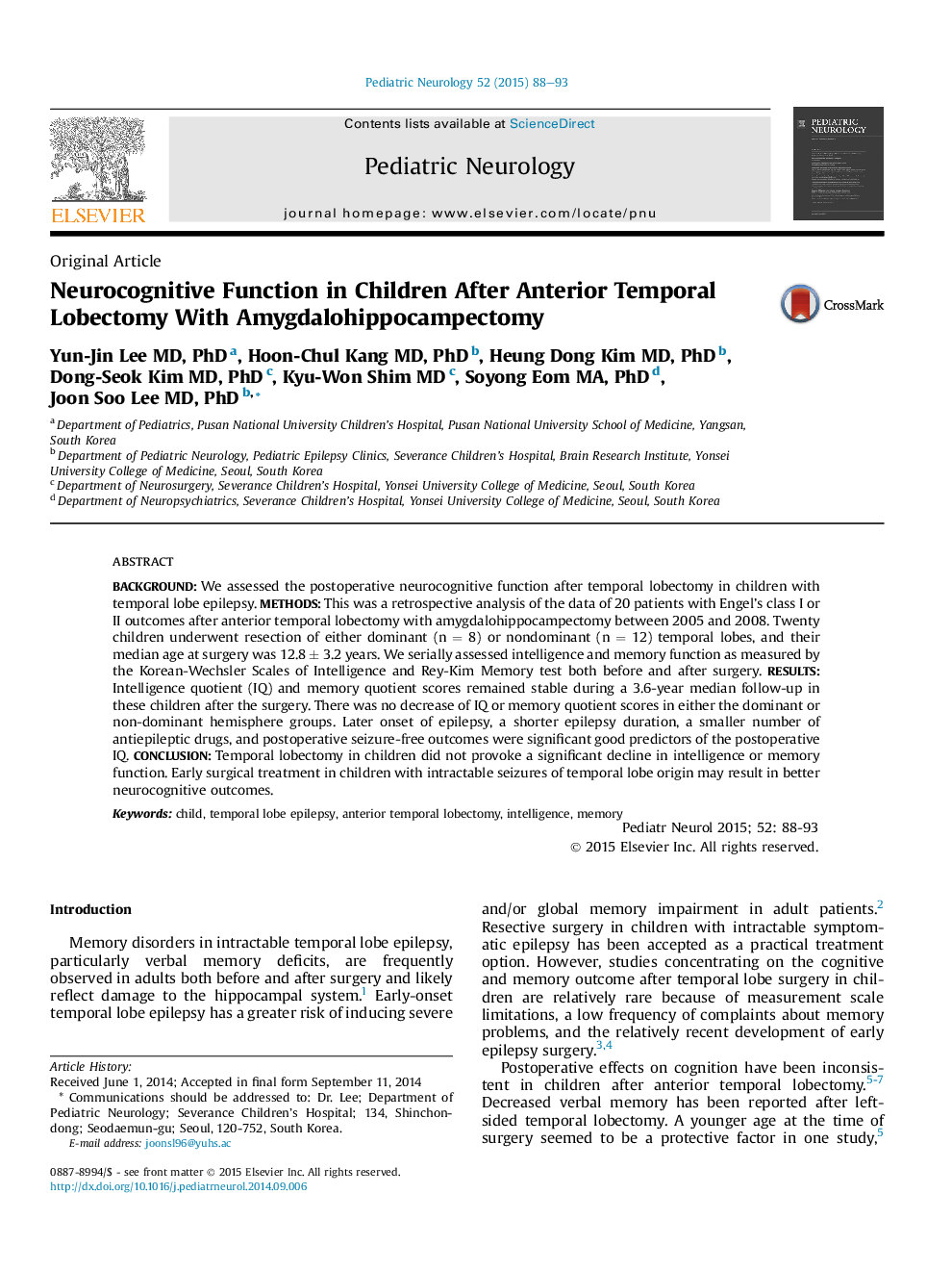| Article ID | Journal | Published Year | Pages | File Type |
|---|---|---|---|---|
| 6042166 | Pediatric Neurology | 2015 | 6 Pages |
BackgroundWe assessed the postoperative neurocognitive function after temporal lobectomy in children with temporal lobe epilepsy.MethodsThis was a retrospective analysis of the data of 20 patients with Engel's class I or II outcomes after anterior temporal lobectomy with amygdalohippocampectomy between 2005 and 2008. Twenty children underwent resection of either dominant (n = 8) or nondominant (n = 12) temporal lobes, and their median age at surgery was 12.8 ± 3.2 years. We serially assessed intelligence and memory function as measured by the Korean-Wechsler Scales of Intelligence and Rey-Kim Memory test both before and after surgery.ResultsIntelligence quotient (IQ) and memory quotient scores remained stable during a 3.6-year median follow-up in these children after the surgery. There was no decrease of IQ or memory quotient scores in either the dominant or non-dominant hemisphere groups. Later onset of epilepsy, a shorter epilepsy duration, a smaller number of antiepileptic drugs, and postoperative seizure-free outcomes were significant good predictors of the postoperative IQ.ConclusionTemporal lobectomy in children did not provoke a significant decline in intelligence or memory function. Early surgical treatment in children with intractable seizures of temporal lobe origin may result in better neurocognitive outcomes.
